In many ways, 2014 has been a banner year for coffee traceability. This movement has been fueled by an industry that has elevated origin as a factor in quality differentiation and subsequent consumer interest in better understanding what is in the cup.
For industry and consumers alike, traceability naturally segues into any number of issues related to supply sustainability and humanitarian issues throughout the supply chain, and this year has seen a bumper crop of news, so to speak, on these fronts.
The bad news is that most of the news has been, well, bad. Through economic analyses, climate modeling, agronomy science, anecdotal evidence and other forecasting tools, the people exploring coffee supply issues at origin have provided a wealth of new information, much of it with troubling long-term economic and/or humanitarian implications.
The good news is that this heightened interest in supply sustainability has perked the ears of many people working in the industry. After all, to roast, brew and sell quality coffee, one must have access to quality coffee.
In talking to numerous green coffee buyers and sustainability experts throughout the year, I have been struck not only by the severity of their collective concern for the industry, but also by their ingenuity and ability to influence positive change. In a sense, the more we learn of environmental, political and economic realities that threaten long-term coffee supply, the greater our ability to interrupt negative flow.
We are only scratching the surface, and here are just a few of the headlines this year relating to supply sustainability and other issues at origin, presented in loosely chronological order:
How GMCR Could Help Revitalize Burma’s “Weird” Coffee Industry
Hurt by a long history of civil and economic instability, and a reputation for “not-quite-specialty-grade,” coffee exports from Burma (Myanmar) to North America and Europe have been sporadic to nonexistent for decades…
From the ‘Rape Capital of the World,’ A Story of Coffee and Hope
I’ve been captured by the allure of one of the last standing bastions of potential for specialty coffee production left in the world. For that reason, I write this as I travel across the world for a second visit to the eastern shore of Lake Kivu in the Democratic Republic of Congo in less than a year…
On Marketplace vs. Origin: ‘Like It or Not, We Are All in This Together’
We spend a lot of editorial energy on this site covering issues related to origin, and more specifically, issues that affect the smallholder farmers on which the specialty coffee industry is entirely dependent…
Renowned Salvadoran Producer Aida Batlle Recognized as Super Good
Fifth-generation Salvadoran producer Aida Batlle has been named in the fourth annual 2014 Good 100 list of worldwide leaders in “global citizenship,” shedding some light for mainstream audiences on the farmer/roaster/consumer relationship…
A Huge Step Forward for Fine Robusta. Is the Specialty Coffee Market Ready?
The Uganda Coffee Development Authority (UCDA) says the Center of Robusta Excellence (CORE) will bring together coffee industry leaders from throughout Africa and the world for research and education to increase quality and differentiated value in fine Robusta. In the process, they hope to break down the robusta quality taboo among influential specialty buyers…
Proportion of Shade-Grown Coffee Down Nearly 20 Percent Since 1996, Researchers Say
The proportion of shade-grown coffee globally has dropped by nearly 20 percent since 1996, threatening biodiversity and production sustainability throughout the world, according to new research from the University of Texas at Austin and five other institutions…
Farmworkers: The Coffee Industry’s Ethical Blight and a PR Disaster in Waiting
Despite the amazing work of some buyers within the industry over the past decade to strengthen sustainability within their own supply chains, as well as the work of nonprofits and other NGOs to provide direct relief at origin, the coffee industry on the whole has a serious and growing “farmworker problem”…
Nyeri is Just the Beginning: Some Clarification on the Controversy in Kenya
There is a huge storm of dust in Nyeri and Kenya’s other heralded coffee-growing regions that is nowhere near settled, as a new government-led program that purports transparency and agricultural growth threatens existing relationships and leaves some buyers doubting…
Inside the SCAA’s ‘Blueprint’ to End Hunger Among Coffee Farmers
I just read the Specialty Coffee Association of America’s white paper, “A Blueprint to End Hunger in the Coffeelands,” created by my colleagues at the SCAA Sustainability Council. This is an educational piece that I warrants a read from every coffee professional and aficionado
Coffee’s ‘Poorest of the Poor’ Cut Out of Certification Benefits, Researchers Say
A four-year study of working conditions among farmers in Ethiopia and Uganda led British researchers to believe that Fairtrade and other certifications did nothing to improve, and sometimes even negatively affected, the lives of individual wage workers and their families
Rwandan Research Team to Launch $20,000 ‘Potato Taste Defect’ Study
A group of people fighting a huge problem in coffeelands of the Great Lakes Region of Africa — potato taste defect — is banking on one small team’s research on antestia bug (antestiopsis orbitalis) mitigation…
2014/15 Global Coffee Production Estimates: A Region-by-Region Breakdown
The USDA’s semiannual announcement is a major speculative force, and the downward estimate is likely to increase uncertainty what has already been a highly volatile market based on unclear data. That said, the global production total has only been revised downward by 400,000 bags since the USDA’s previous estimates in December…
In Defense of Fair Trade: A Response to the ‘Farmworker Problem’
While critical evaluation of any ethical scheme is very important, I find that evaluations of Fair Trade are rarely if ever constructive, and usually border on naively derisive. A recent report by the Fair Trade, Employment, and Poverty Reduction project highlighted that farm workers on Fair Trade farms in Ethiopia and Uganda were often treated worse and lived in worse conditions than their non-Fair Trade counterparts…
Castillo vs. Caturra: The Gavel Has Sounded for the Colombia Sensory Trial
Texas A&M-based World Coffee Research and Catholic Relief Services are embarking on a program with several leading U.S. roasters and buyers that will provide first-of-its kind sensory data comparing two of Colombia’s dominant coffee varieties: Castillo and Caturra…
World Coffee Research Director Tim Schilling Tells Us All About the Variety Intelligence Project
I had the honor during this year’s SCAA Symposium of facilitating a panel discussion on the coffee leaf rust epidemic in Central America — a panel featuring some big names in coffee. In the end, some of the most memorable contributions to the conversation were made by folks not on the official agenda, including World Coffee Research Executive Director Tim Schilling…
Made in the USA: The State of the Hawaiian Coffee Industry
When you think Kona, you probably think coffee. In many ways, it’s that rich reputation and long-standing tradition that make Hawaii’s coffee professionals so passionate, though you’ll find passion for exceptional coffee not just in Kona but throughout the state — on Kauai, Maui, Oahu, Molokai and other islands, and in the other growing regions of the big island, including Kau and Hamakua…
Nespresso Says It Will Invest $554 Million In Sustainability Over Next Six Years
Nespresso owner Nestle stopped reporting the brand’s sales figures in 2011, but it is widely regarded as Europe’s biggest capsule system brand, and this is certainly one of the largest corporate investments in in-house environmental and social programs the coffee world has ever seen…
Hate the Game, Not the Players: In Defense of ‘Cause Coffee’
There has been plenty written lately, here and elsewhere, on the positive impact of coffee certifications. Conversely, much has been written about the limitations and perceived failures of certifications. But one point of attack I can personally no longer withstand is the idea that coffee companies, on the whole, should be shamed for marketing their good deeds…
The CQI Gender Initiative and Why Industry Should Care About Equity at Origin
The conversation surrounding gender issues in producing countries is changing, and it may be time for some fresh ears. Consider this: The Bill and Melinda Gates Foundation — one of the largest private foundations in the world with an endowment of $38.3 billion USD as of June 2013 — updated its official policy on issuing grants to agricultural development programs that do not explicitly factor the potential effects on women. It is, in a nutshell, “No.”…
Public-Private Partnerships Failing Smallholders (See Nyeri), Says Fairtrade Foundation
Smallholder farmers have been under-represented or ignored in public-private partnerships (PPPs), causing some PPPs to further aggravate the social and economic disparities they were intended to address, according to a new report from the UK-based Fairtrade Foundation…
Born Into Coffee: Observations from a Third-Generation Colona in El Salvador
My grandmother on my mother’s side was abused by her husband. She left him and took their five children with her to look for work. A friend suggested she try MALACARA, and Don Samuel, as my grandmother called the owner, took pity on her as a single mother of five children. He gave her a little room and permanent work as a colona. Her children grew up on the farm, and so did the children of her children. I am the youngest daughter of her youngest daughter, her last granddaughter…
A Conversation with Ric Rhinehart on the Future of Coffee in Mesoamerica
Last week I participated in Let’s Talk Coffee, importer Sustainable Harvest’s annual value chain event, for the fifth time. The content of the event was broader, and the caliber of the speakers higher, than at any other LTC event I remember. But the best presentation of the event — the one that still has me thinking the better part of a week later — was not a presentation at all. It was three related comments made in rapid succession by SCAA Executive Director Ric Rhinehart…
Do the Copyright Thing: Your Use of Origin Images to Sell Coffee May Be Unlawful
You’ve seen it countless times on bags, coffee shop walls and on coffee company websites: The image of a farmer picking ripe coffee cherries, designed to connect consumers to the origin of their coffee and perhaps even provide a face for farmers themselves. They may be perfectly lovely pictures shown with good intentions, but their use in most cases is unlawful and, at best, unethical…
The Nordic Approach to Coffee Processing (with video)
There is an old saying, “The devil is in the details.” In the case of Nordic Approach, the green coffee importing company founded by Tim Wendelboe (the person) and Morten Wennersgaard (formerly of Solberg & Hansen), the devil is represented by imperfections in any lot that may affect the cup…
Opinion Letter from Colombia’s FNC on the Emerging Institutional Uncertainty
A reasonably contentious situation has emerged in the Colombian coffee sector, following a leaked Presidential commission report that suggested the need for widespread reforms among the country’s numerous coffee-related institutions…
26-Year-Old Nonprofit Coffee Kids to Suspend Programming Beginning Jan. 1
Coffee Kids, the nonprofit that has for 26 years been working to improve the lives and livelihoods of coffee farming families, has announced it is suspending programming at the end of this year, while it looks for a new organization with which to merge…
Report: Climate Change May Cut Available Coffee Growing Land in Half by 2050
The amount of suitable land for growing coffee on a global scale could be cut in half by 2050, with key growing regions in Brazil and Vietnam particularly impacted. This is among a frightening list of takeaways from a new climate modeling study…
Nick Brown
Nick Brown is the editor of Daily Coffee News by Roast Magazine.



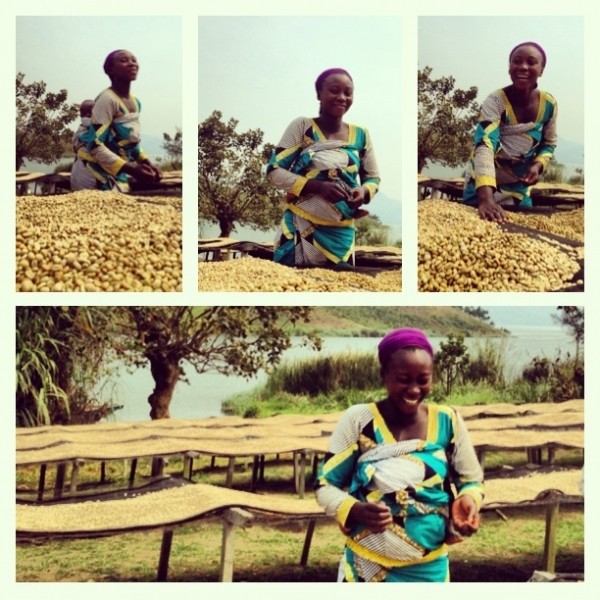
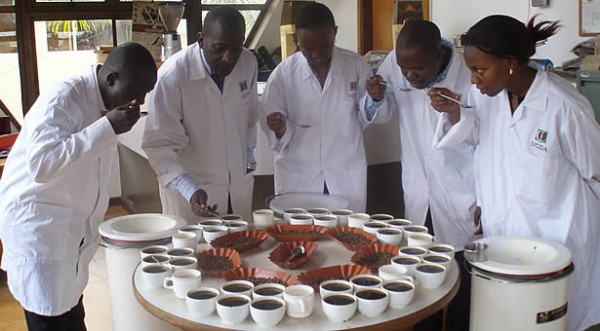
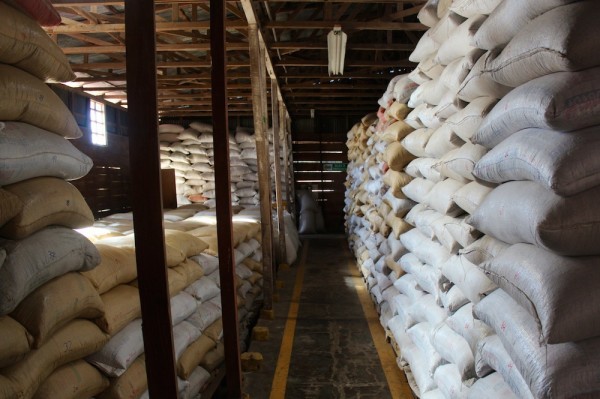
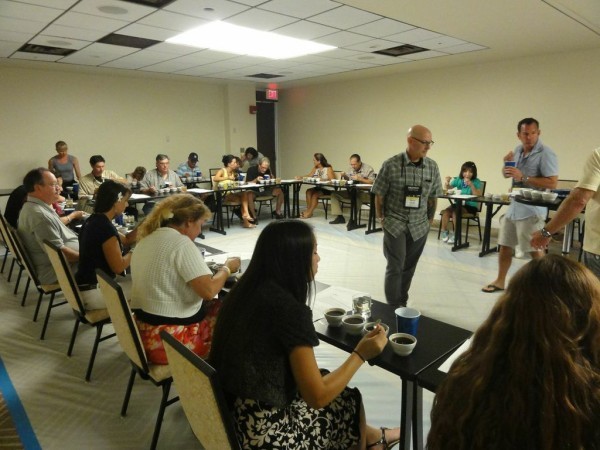

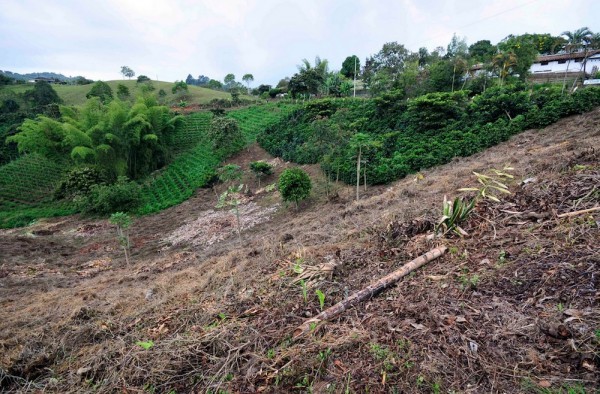



Comment